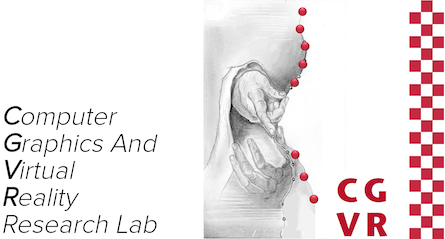Entwicklung und Implementierung einer Methodik für die Erfassung von Sensor– und Referenzdaten sowie deren Anwendung zur Latenzmessung
Abstract
The TRON–Laboratory of the German Aerospace Center in Bremen is a testbed for optical navigation sensors. Using a robot, they can be moved over the surface of milled structures to simulate the motion relative to a target object, for example the moon. A Laser Tracker system targets specific reflectors to determine the attitude and position of the sensor. To provide these reference data with high accuracy while moving the sensor, it is necessary to synchronize the points of time of the data acquisition. Therefore, the focus of this work is the latency measurement and synchronization of the Laser Tracker and a common industrial camera. The approach is based on a publication from Anthony Steed [9] and utilizes a pendulum oszillation which can be described by a sine curve. This happens for the camera data as well as for the Laser Tracker data. The latency can be determined by calculating the phase shift of those two curves, which then allows to modify the trigger setup to delay the measurement of one device. Hence, the delay between the data acquisition of Laser Tracker and camera can be minimized. Further latency measurements indicate a remaining latency of approximately 7 μs.
Files
A full version of the master's thesis can be downloaded here (German only).
License
This original work is copyright by University of Bremen.
Any software of this work is covered by the European Union Public Licence v1.2.
To view a copy of this license, visit
eur-lex.europa.eu.
The Thesis provided above (as PDF file) is licensed under Attribution-NonCommercial-NoDerivatives 4.0 International.
Any other assets (3D models, movies, documents, etc.) are covered by the
Creative Commons Attribution-NonCommercial-ShareAlike 4.0 International License.
To view a copy of this license, visit
creativecommons.org.
If you use any of the assets or software to produce a publication,
then you must give credit and put a reference in your publication.
If you would like to use our software in proprietary software,
you can obtain an exception from the above license (aka. dual licensing).
Please contact zach at cs.uni-bremen dot de.
If you use any of the assets or software from this web page to produce a publication, you must give credit and put a reference in your publication. For the reference, please use the following format:
Waldemar Wegele. "LenSelect - Dynamic Object Scaling in Virtual Environments for Object Selection". Master's Thesis, University of Bremen, August 2020.



